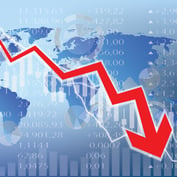Nearly half of workers polled fear the financial impact of a critical illness more than dying from one, new research reveals.
Sun Life Financial reports this finding in a summer 2013 white paper on critical illness insurance, “Well-placed fears: workers’ perceptions of critical illness: What every employer needs to know.” Administered by Kelton Research, the online survey polled 4,116 full-time U.S.-based employees, the median household income and age of respondents being $51,000 and 43, respectively.
When asked to identify their greatest concern in case of a critical illness, 47 percent of survey participants named “finances.” That’s a significantly higher percentage than the third (29 percent) who flagged “dying” or the fifth (22 percent) who cited “the emotional burden.”
The report adds that middle-aged workers ages 40 to 50 are twice as likely to be more concerned with finances than with dying.








 July 15, 2013 at 11:13 AM
July 15, 2013 at 11:13 AM










